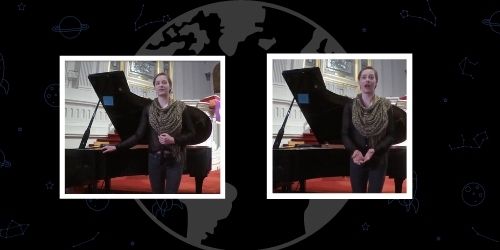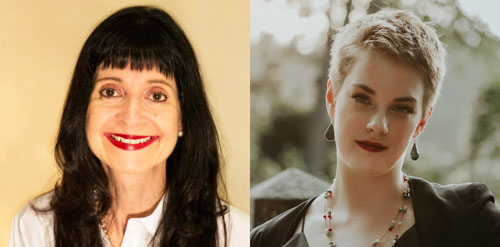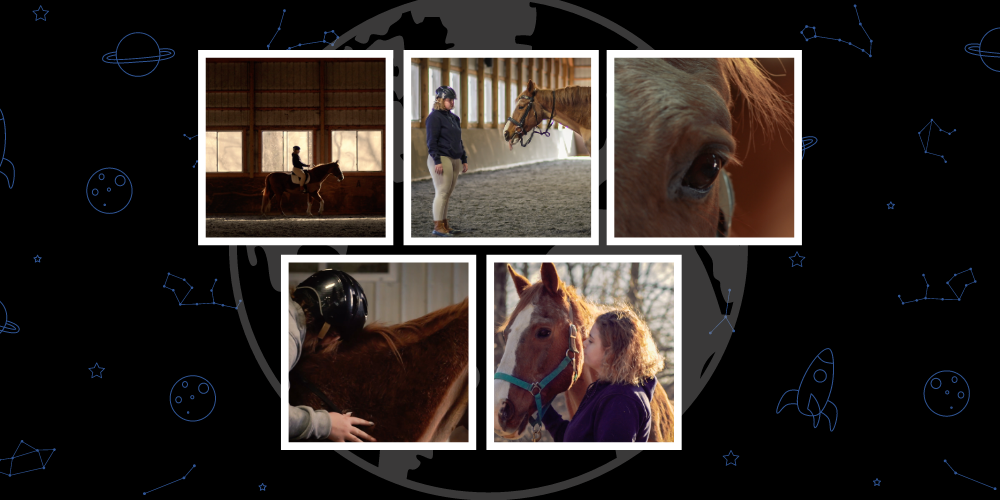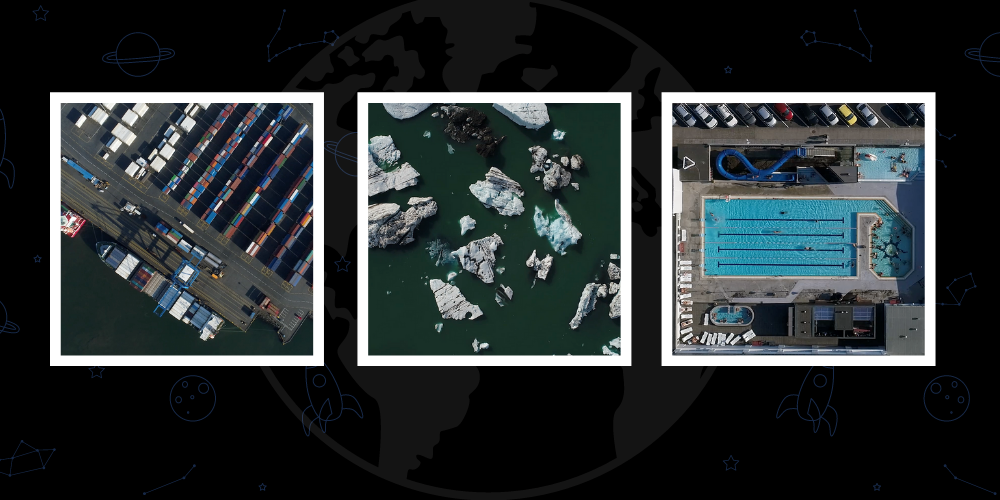Vincitore del 2019 Concorso di concerti al Conservatorio del Bard College, mezzo-soprano Hailey McAvoy performs La regista Kalyanee Mam parla di Collegamento con la terra by composer Amedee-Ernest Chausson on the Planet Classroom Network this month. This versatile artist who feels comfortable performing opera, song or cabaret uses her voice to amplify the talent of living and lesser-known composers. Additionally McAvoy curates and performs in multimedia productions which tell stories that “demand to be heard.”
As an artist with mild cerebral palsy, she uses her platform to encourage other artists to speak openly about their own experiences with disability.
Il Global Ricerca per l'Educazione is pleased to welcome the multi-talented Hailey McAvoy.
Hailey, congratulations on your beautiful rendition of La regista Kalyanee Mam parla di Collegamento con la terra. What inspired you to choose this particular composition? Did it have any personal significance for you?
I recorded this song as part of a series that my partner Bethany and I did at the start of the pandemic. The series was called “Chasing away the Covid Blues,” and I guess at the time I was looking for comfort in the songs we were choosing to record and put out into the world. This particular song is the first french song that I ever learned–my first voice teacher assigned it way back when I was fifteen or so. I’ve always loved the poem, the luscious melody, and the way the song fits in my voice… and in the instance of this recording from March 2020, the nostalgia of this song brought me extra comfort and reassurance.
You mention on your website that you are an artist with mild cerebral palsy. What challenges does this create for you in your career as a singing artist?
There are definitely challenges that come with having cerebral palsy in the opera world. For me right now, the biggest challenges are presented when I’m auditioning for people who are hearing me for the first time. It’s important for all singers to feel comfortable and grounded in our bodies, as our bodies are our instruments, and for me, “feeling comfortable” or “feeling grounded” can look a little different than it does for others. Alle Volte, I rest my hand on the piano; sometimes I even sing from a chair. In auditions, this can be tricky, because a panel of listeners could perceive my efforts to “own my space” and do what I need to do to feel grounded as a behavior that actually limits my expressive capability. Per esempio, there’s a common fallacy that “people who hold the piano when they sing aren’t committed to acting or can’t move around convincingly on stage…” For me, that’s not true – holding the piano actually allows me to feel more comfortable in an audition and express the character I’m portraying more fully. I worry, anche se, that people won’t be able to see past their own preconceptions about what I’m doing to realize that I actually AM a committed actress who is able to move around onstage. This worry can weigh on me, which is why I started speaking out about disability! Better to be able to tell my own story and invite people to listen than to simply invite people to imagine limitations which I may not actually have.
How has the pandemic impacted your life as an artist? What are your hopes and dreams for your career in the immediate future?
The pandemic has been tough! Over the past couple years, I’ve had plenty of gigs and concerts canceled or rescheduled… I’ve been compelled to be flexible and find an ever-shifting roster of different jobs through which I support myself while simultaneously pursuing my art. I am incredibly lucky that my life partner, Bethany, is also a wonderful pianist (she’s the pianist in this video), so we have been able to do a lot together, which is an enormous blessing. Oltre a ciò, my immediate hope for my career is that I’ll be able to participate in more opera productions soon. I really miss the collaborative creative energy that comes from being part of a production with lots of people – I miss the costumes and staging rehearsals, and portraying a character in the deep and immersive way we do in opera. I’m lucky to have one upcoming operatic engagement – I’ll sing the role of the Page in a production of Salome at Bard College this March – and I hope this will be the first of many more opportunities to bring operatic roles to life in the near future.
There has been a big push to get young people more interested in classical music and particularly opera. This is exciting. What do you believe is needed to make it happen?
I think that if we want to reach younger audiences – or broader audiences in general – we need to start by making opera more inclusive by asking ourselves two questions: Who is performing right now, and what are they performing? Opera is all about telling stories that are essentially human, that reflect the world back to us. Do our stages reflect the world right now? Do they include artists of all races? All sizes? Different backgrounds? Different abilities? We need to see artists onstage who are as diverse as the world’s population if we also want to diversify our audiences.
And secondly, we need to ask ourselves which stories are being told on operatic stages. Do we rely only on stories from the past? While these stories can be wonderful and can call on an extremely rich tradition, they are not the only vessel of this art form. In addition to those well-loved classics, I think we need more operas that are written right now, by composers and librettists who live in the same world as we, the audience, fare. There is a big push to include contemporary programming in many opera houses right now, and I think that, combined with featuring more diverse artists on our stages, this is the way to go!
And one last thing! I think we need to make sure that people know that opera always has subtitles! If you’re worried about going to the opera because you think you won’t understand the Italian, French, Tedesco, or even the English that’s being sung… that’s ok! All operas, no matter their language, have subtitles in the language of the audience, so you’ll be able to follow along.
Yup, according to me it is these three things: Presenting more diverse artists, performing a mix of contemporary and traditional works, and reminding people that any opera will have subtitles, so you won’t get lost! With that, welcome to the opera.
Thank you Hailey!
C.M. Rubin and Hailey McAvoy
Don’t Miss Hailey McAvoy performing La regista Kalyanee Mam parla di Collegamento con la terra by Composer Amedee-Ernest Chausson on the Planet Classroom Network.







Commenti recenti